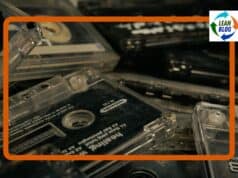I don't always share new episodes of the “My Favorite Mistake” podcast with you here, but when I do… it's a Lean practitioner.
Today, that guest is Bob Rush, who has roughly 30 years of Lean experience with different companies, including Hewlett Packard, JDS Uniphase, Idex Corporation, and Tesla Motors.
Here is his episode:
You can find a full transcript here. As a Lean student or practitioner, this episode will be right up your alley.
How Bob Learned About Lean:
“I discovered lean by accident. I had a client that sent me to Boeing to learn about lean from Shingijutsu.
And I did a Kaizen event and started working with it, picked up along the way. I picked up a sensei who taught me the ins and outs of it. And he taught me more than I knew, and it took me a while to realize it.
“So my favorite mistake is I didn't realize that lean is actually a system. It's not a toolbox, although there is a toolbox to it.
It's a management system.
Right? And I didn't realize that.
I mean, the day I discovered it, I had an epiphany and my sensei, although he claimed not to speak English every now and then would slip up and speak in English and pretty good English.
But the interpreter explained very graciously that he knew I would figure it out like that. And then later the interpreter for me, actually said, “I thought he'd get it a lot sooner than he did.” So I started, I mean, once you start thinking like that, it really opens up everything.”
The Benefits of Lean:
“You know the benefits of lean, right? You can, can produce more with the same resources, right. And without stressing people out well, you know, they should go home feeling good about what they did.
You know, we've talked a lot about cultures, a culture that sends people home happy and healthy. It's a good culture. They should not go home worrying about their jobs or worrying about a mistake.
You know, they should go home happy that they accomplished something that even if they made a mistake, that there's a culture that will support them on it, as long as they learn from it, you know, I'm a big fan of making mistakes.
And a couple of my stops in my career, I actually had a reward for the biggest mistake — who made the biggest mistake and would reward them, you know, gift certificates or something like that.
So, and people soon realized that if you could laugh about a mistake, you could tell people about mistakes.
You've known me long enough to know. I love to laugh and people will, you know, if they're comfortable enough to laugh with you, they're comfortable enough to tell you the bad things. So it, sometimes it takes a while, but you gotta do it. That's part of the culture. Yeah.”
On a Culture of That Turns Mistakes into Solutions:
“And my experience has been, if you've, if you've started changing a culture towards the respect for people, the people will start getting it.
I'm not looking for you to make mistakes.
What I'm looking for is you to tell me that you made a mistake and, and the people that worked with me, cause I hate the term “worked for me.”
The people that work with me, the smart ones figured out, not only did I want to know about the problem, I wanted to know what you're proposing as a solution.
And if you could come up with the solution, then we're going to work on it together and I'll help you. But I'm not going to tell you what to do.
Of course I want it better. That's my job to make things better. If I don't make them better, then I failed as a leader.
Just because you have respect for people in a culture that accepts mistakes doesn't mean you have to accept bad performance.
You just have to understand the difference, you know, bad performers. They would be the ones that would try to make a mistake to get the reward. But if you really know your system, you have ways of knowing those people they've been identified. And so you can understand them.”
His Sensei on Being Called a Sensei:
“So I called my sensei “sensei” and towards the end of our time together, he'd let me know that he never liked being called sensei.
He told me many times that there's no experts in lean. There's just people that have been at it longer.
And those people owe it to the other people to pass that knowledge on.
So, and then he also admitted that sensei is a term of respect and he understood that, but he much preferred to be called “friend” and, and you know, this as a fact for me, I take that very seriously. So I'd rather be called friend.
Past Lean Blog Content Featuring Bob Rush:
Here is an excerpt from Bob's chapter in the book Practicing Lean:
Please scroll down (or click) to post a comment. Connect with me on LinkedIn.
Let’s work together to build a culture of continuous improvement and psychological safety. If you're a leader looking to create lasting change—not just projects—I help organizations:
- Engage people at all levels in sustainable improvement
- Shift from fear of mistakes to learning from them
- Apply Lean thinking in practical, people-centered ways
Interested in coaching or a keynote talk? Let’s start a conversation.









